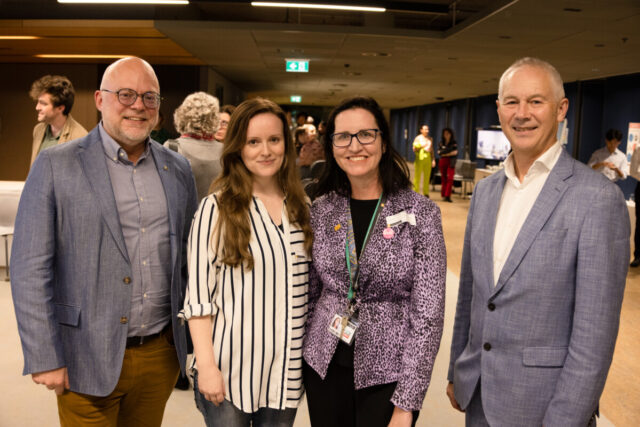
Forty students from Curtin University recently teamed up with academic, community and industry leaders to develop innovative solutions for the disability sector through an inaugural Learning Futures Accessibility Challenge.
Funded by a $264,000 State Government Innovation Fund grant, the project saw participating students working in groups to address the four’ Pillars for Change’ from the State Disability Strategy 2020-2030, which include participation and contribution, inclusive communities, living well, and rights and equity.
The week-long event featured presentations from Paralympian Elizabeth Wright, performance artist Julia Hales, and disability rights advocate Senator Jordon Steele-John.
Professor Darren Bryant, Dean of Learning Futures at Curtin, said the program helped examine how disability solutions can also be an opportunity to inspire innovation.
“The Challenge aimed to fuel innovative thinking by identifying and resolving real-world problems. It served as a masterclass in tackling complex issues, inspiring students to apply their skills and knowledge to make strides towards creating a more accessible and inclusive society,” Professor Bryant said.
“This initiative encouraged students to explore creative solutions for barriers to equal participation.”
Some solutions presented by the teams included university multi-sensory rooms, tools for greater inclusivity in art galleries and museums, podcasts celebrating diverse stories, an accessible housing app and an AI tool to support individuals with intellectual disabilities or limited literacy in completing online forms.

According to the Australian Bureau of Statistics, approximately 1 in 6 Australians, or about 4.4 million people, live with a disability.
Dr Gwyneth Peaty, the event coordinator from Curtin’s Centre for Culture and Technology, believes it is their obligation to develop effective solutions, and this Challenge brought together a diverse pool of talent to do that.
“It’s our collective responsibility to create an inclusive community and the great thing with this Challenge was seeing the teamwork across different faculties to address the unique requirements of people with disability,” Dr Peaty said.
Despina Karatzias, a mature-age student studying a Master of Digital and Social Media, travelled from Melbourne to participate in the Accessibility Challenge.
“I loved the group environment, the thought-provoking discussions and being around academic mentors. This experience has expanded my thinking and has given me many insights to apply not only to my studies but also to my role as a business coach,” Ms Karatzias said.













